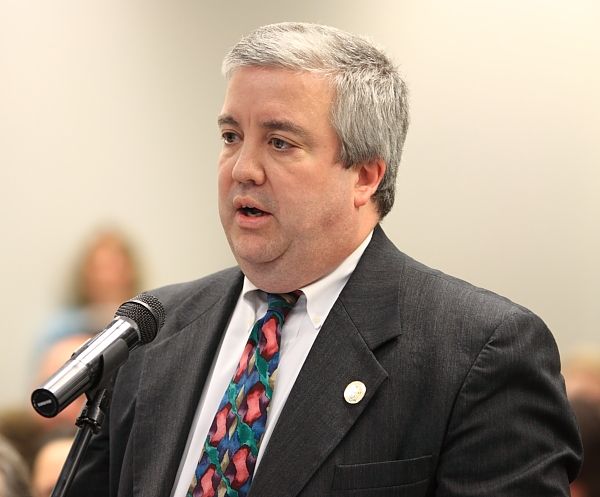Business Community Joins Governor Christie In Turning Back the Clock on Toxics
Drinking Water At Risk Due To Lack of Treatment Technology To Remove Toxics
Toxic Race to the Bottom
For decades, NJ was a major importer of solid and hazardous waste and a huge generator of hazardous waste.
State laws and DEP permits did not restrict the disposal or discharge of toxic pollutants to sewage treatment plants, NJ waterways, or landfills.
As a result, NJ led the nation in Superfund sites and our groundwater, rivers, wildlife, and river sediments were loaded with toxic chemicals.
It took decades of strong environmental laws and regulations, backed by billions of dollars of investment by the government and the business community to begin to reverse this outrageous situation.
One example of these laws is the NJ industrial pretreatment program, which mandates that industries that generate wastewater that contains toxic organic chemicals and heavy metals treat that wastewater prior to discharging it to sewage treatment plants.
The pretreatment program has been hugely successful and significantly reduced toxic chemicals that end up in sludge residuals and the wastewater discharge from those sewage treatment plants to our rivers and streams.
DEP experts have expressed serious concerns about toxics in fracking wastewater. DEP warned NJ sewage treatment plants in a July 20, 2011 letter:
As noted in the EPA letter, POTWs may accept this wastewater provided it complies with all Federal, State, and local requirements. However, the NJDEP has concerns regarding this wastewater because it may have elevated concentrations of contaminants that POTWs are not designed to treat, and therefore may pass through or interfere with the operations of the treatment works .
So, why would Governor Christie and the NJ business community want to turn back the clock on all this progress and return NJ to a major importer of toxic waste?
Just like NJ imported millions of tons of garbage from New York and Philadelphia, Gov. CHristie and corporate lobbyists now want to repeat that horrible history by importing billions of gallons of toxic fracking wastewater generated next door in Pennsylvania.
Have the Chamber of Commerce and BIA polled their members, who have invested these billions of dollars in pollution controls to reduce the environmental loading of toxic chemicals?
Why should the fracking industry be subject to weaker environmental requirements and be allowed to undermine those industry investments?
Today, the Chamber of Commerce, Business & Industry Association, Chemistry Council, and NJ Petroleum Council all opposed a bill that would ban the treatment in NJ of wastewater and residuals from fracking. (see S1041)
NJ depends on our rivers as sources of drinking water. Those rivers receive billions of gallons of treated industrial and residential wastewater from hundreds of sewage and industrial treatment plants.
Those plants are not designed to treat and dispose of the toxic chemicals and radiological contaminants known to be present in fracking wastewater.
The legislation is designed to protect NJ’s drinking water from disposal of treated fracking residuals in NJ waterways, which serve as sources of drinking water.
The bill passed both houses of the legislature last year by huge majorities, but was vetoed by Governor Christie allegedly on the basis that it would violate the Commerce Clause of the US Constitution.
The intent of the bill is not to restrict inter-state commerce or provide an impermissible benefit to NJ’s economy.
The objective of the bill is to protect NJ drinking water and ecosystems from the impacts of treatment, disposal, and discharge of toxic waste to NJ waterways.
Fracking residuals are laced with radioactive and chemical contaminants that are not completely removed or destroyed by current treatment and disposal technology.
It is insane and contrary to 30 years of environmental law and policy to allow the treatment and disposal of chemical and radiological hazardous waste in NJ waterways.


Pingback: WolfeNotes.com » Another Decade of Doing Diddly On Controlling Carbon Emissions?
Pingback: skip hire Amersham